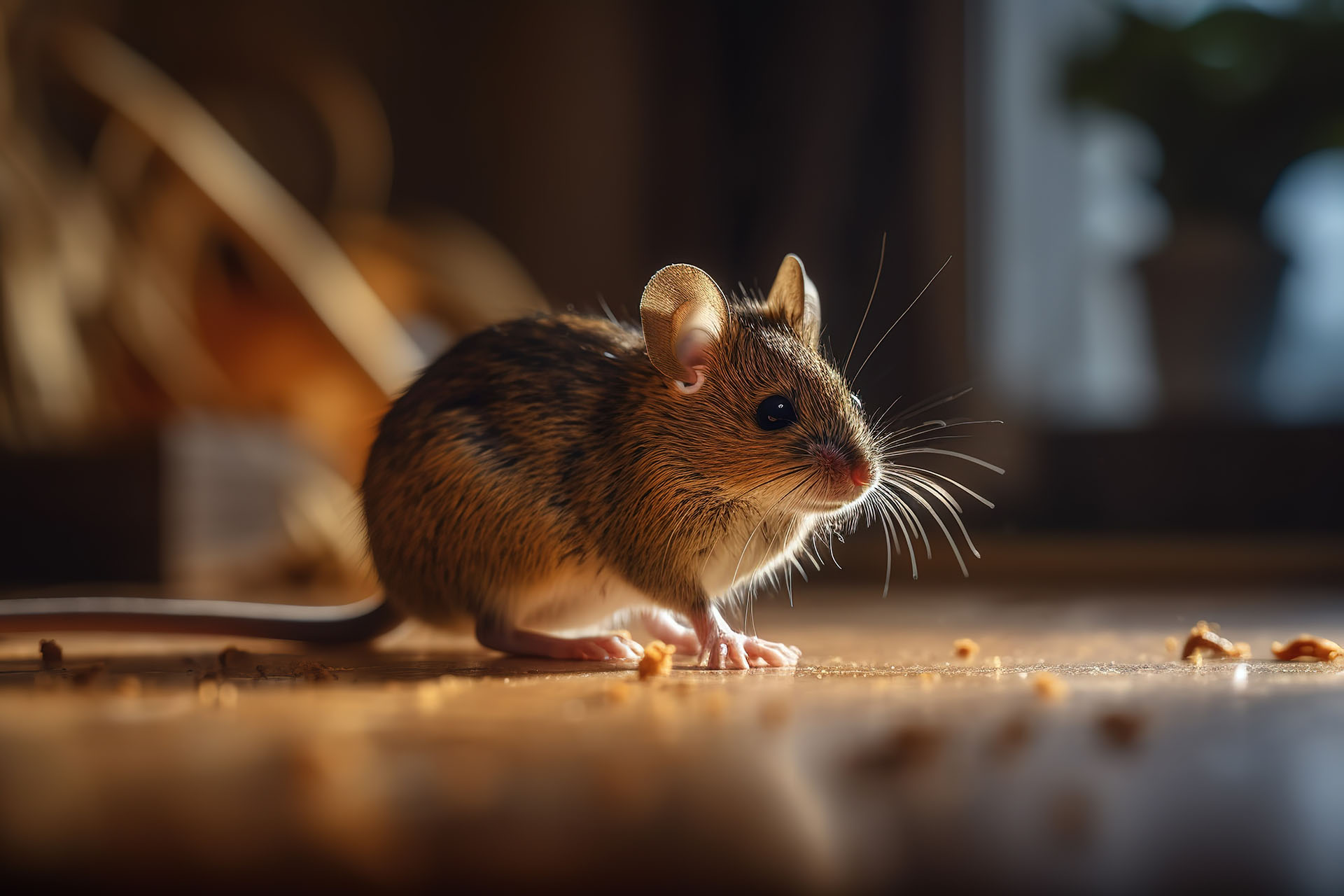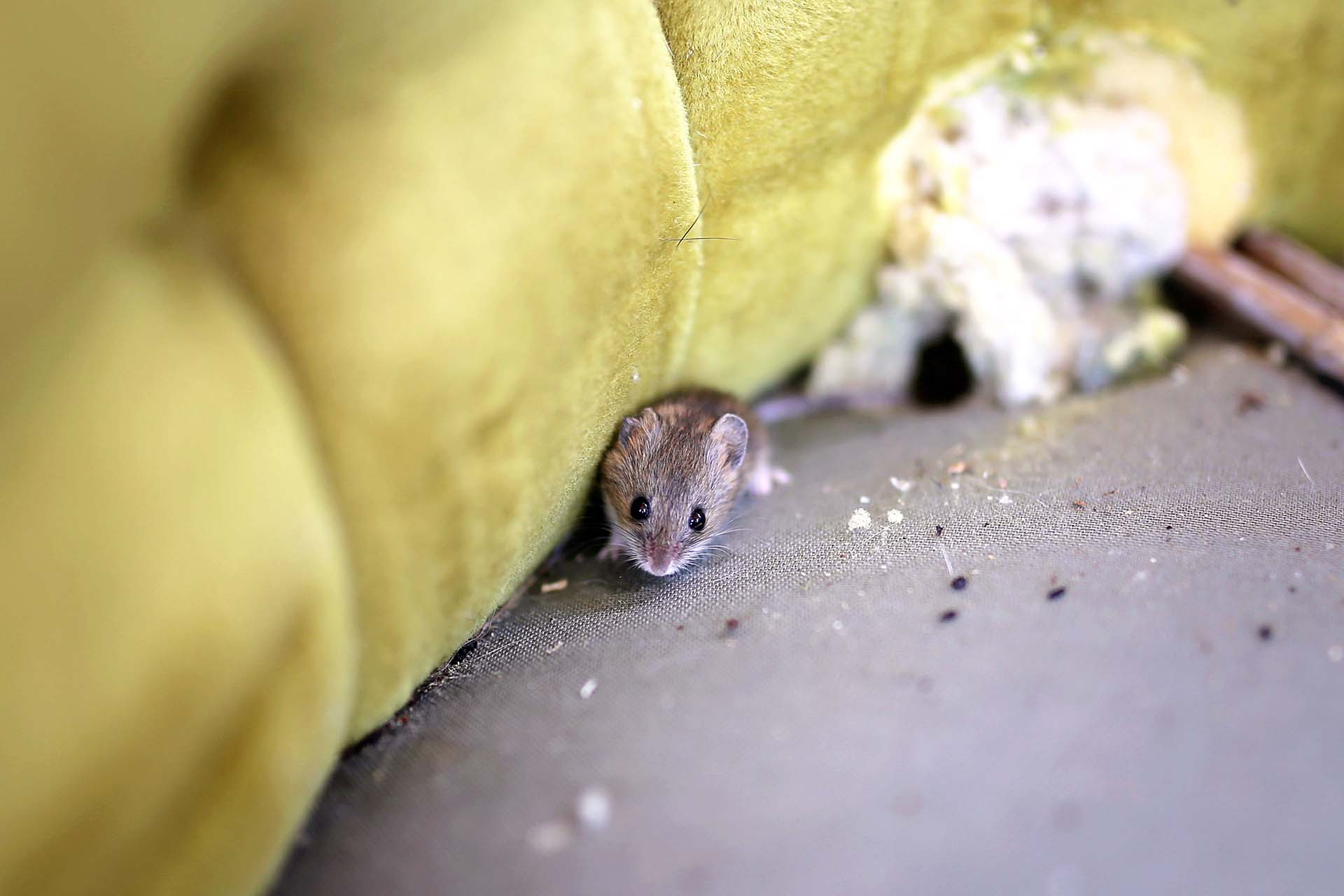Mice FAQs
Even though they might look cute and friendly (especially in cartoons!), there aren’t many things as startling as unexpected scuttling sounds or sightings of mice in your home! In addition, mice can carry disease and cause considerable damage to your home if an infestation is not properly dealt with. Having mice is not necessarily an indicator of an unclean environment, they are often just searching for warmth, shelter and food. In this blog article we aim to help you understand the behaviour of mice and offer effective solutions for keeping them out of your home. Our Mice FAQs provide valuable insights into common questions about mice, including how to get rid of them, their habits, and how to prevent infestations from recurring.
How to get rid of mice?
Traditionally, snap traps are the best and most common way to eliminate mice from your home. The mouse is tempted into the trap with bait and then dispatched immediately as it snaps shut. If mouse activity persists, it is best to consult a pest controller who will be able to identify where the mice are entering the property and potentially proof any entrances, as well as eradicating activity and offering advice for future prevention.
Good hygiene around the home is a good habit to get into. Making sure you don’t leave any food out overnight, emptying food waste regularly and clearing away any pet food dishes will help to keep them away.
There are a number of things that some suggest can act as a repellent for mice, including peppermint oil, cayenne pepper or cloves. However, in our experience none of these work. Even the traditional option of getting a pet cat doesn’t always work either, as we often attend properties where mice are active whilst also having a resident cat!
What do mice eat?
Mice have a varied diet including seeds, nuts, berries and vegetation as well as some small insects. It’s a bit of a myth that they like cheese – they actually prefer food higher in carbohydrates. If you’re trying to tempt them into a trap, they’re very fond of sweet foods like peanut butter or chocolate spread!
Are mice nocturnal?
Mice are generally known as being nocturnal. They tend to stay hidden in the daytime and forage for their food during evening hours. They don’t like bright light, so if you do see one during the day, it probably means it is hungry or has had it’s nest disturbed. However, in some cases, seeing them during the daytime could indicate a larger infestation in the home.
Can mice climb walls and can mice jump?
Mice can easily climb brick walls or any vertical surface as long as the area they’re climbing isn’t made from a smooth material eg. glass, metal, plastic. These don’t provide a good enough footing for mice to grip on to as they scale the wall.
They can also jump up to around a foot in the air which allows them to manouver small obstructions in and around the home.
How long do mice live?
Many factors determine how long mice can live, including the particular species of mouse; but generally they live for between six and eighteen months. In the wild they tend to have a shorter lifespan because they’re more likely to fall victim to predators such as snakes or birds of prey. Their house dwelling relatives usually have a reliable source of food, water and shelter which means they can often survive longer.
What do mice droppings look like?
On average, mice defecate around 50-60 times a day. Their faeces is very small, often only around 5mm or so in length and closely resembling a grain of rice in size (please don’t get them mixed up!) If you ever happen to find any, the less shiny the pellets are, the older they will be.
What do mice need to survive?
Mice can actually survive on very little, often consuming less than five grams of food a day. They don’t even need water if their food contains enough moisture (upwards of 15% water content). Add to that some shelter to keep them warm and dry and they happily thrive.
Do mice hibernate?
Instead of hibernating like hedgehogs or dormice, mice spend the winter months foraging for food and avoiding predators. Because of this they can be a problem all year round.

How many babies do mice have?
It is most common for a mouse litter to contain around six or seven pups (or pinkies), however this can be up to twelve. A female mouse will only be pregnant for around three weeks and partly due to this short gestation period, can produce between five and ten litters a year. That’s a lot of babies! Interestingly, female mice can mate from as young as six weeks.
How many mice in a nest?
The average nest will be home to between 12 and 24 mice. They look for dry and warm areas so that they can raise their pups safely, and use anything from fabric to shredded paper to build their nests.
Do mice bite?
Mice can bite, but it’s very rare. They try to avoid human contact where possible – they’re more frightened of us than we are of them! However like many creatures, if they feel threatened they may give you a bit of a nip. If they do, it’s important to clean the wound thoroughly and seek medical advice.
Do mice carry diseases?
Unfortunately, mice are linked with a number of diseases, including Salmonella, Listeria, Hantavirus and Leptospirosis, amongst others. They can spread illness and disease to humans in a number of ways, notably through contact with faeces, urine or saliva. If you come into contact with any of these, it’s important to seek medical advice.
Do rats and mice live together?
Whilst they might share a similar habitat in the wild, the reality is that mice and rats do not usually live together. They are both very territorial but rats normally come out on top and will often prey on mice if food is scarce. However, we have seen infestations of rats and mice at the same time occasionally in some properties!
Are mice blind?
Contrary to the famous nursery rhyme, mice are not blind! They do however have very limited vision and will run close to walls and other objects so that their whiskers can assist their manoeuvring.
Take Action Now to Protect Your Home from Mice!
Don’t let a mouse infestation disrupt your home and peace of mind. At iX5 Pest Control, we specialise in quick and effective solutions to keep your property pest-free. Our team of experts is ready to assist with tailored strategies to remove mice and prevent future infestations. Whether you’re already experiencing an issue or want to take preventative measures, we’re here to help.
Contact us via our short form here, email [email protected] or give us a call on 01604 328545 to schedule a thorough inspection and consultation today.

